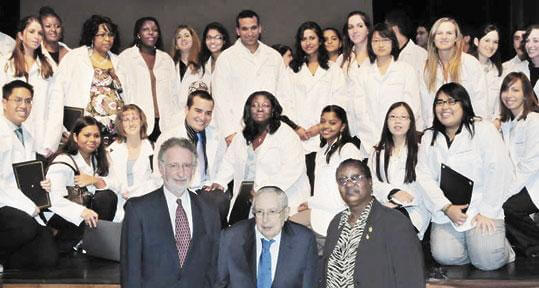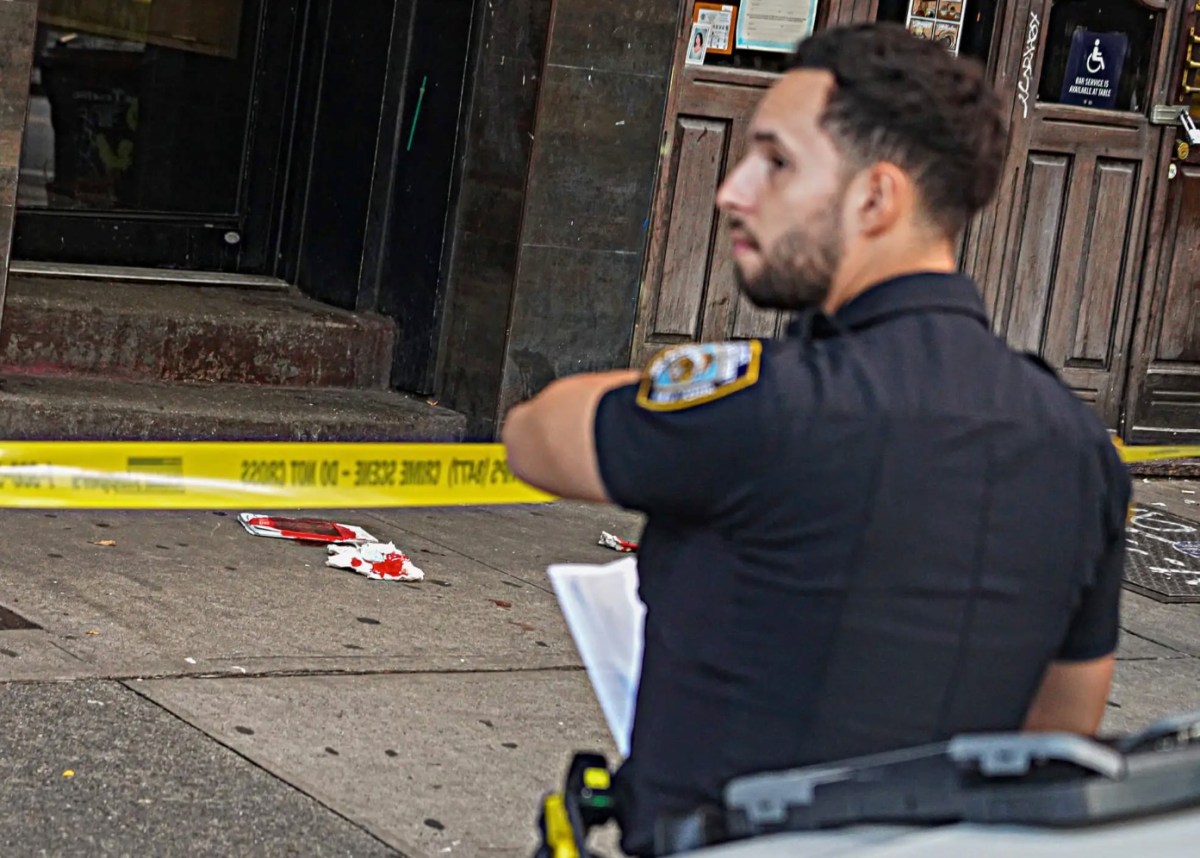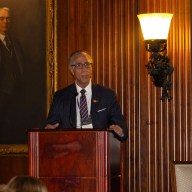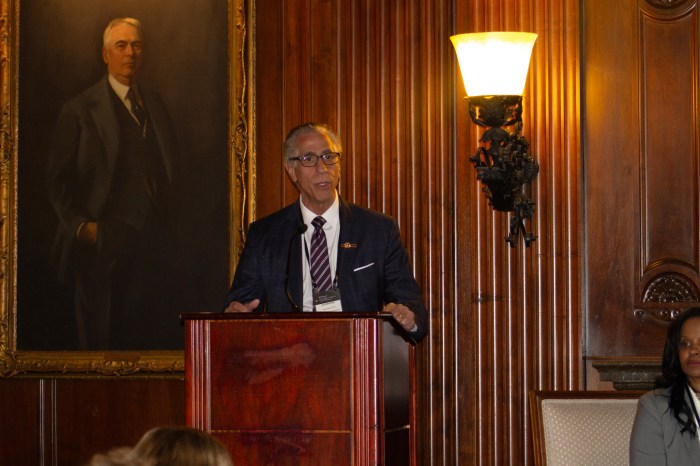Sixty-six Doctor of Pharmacy (Pharm D.) students, who will enter Touro College of Pharmacy this fall—the first new pharmacy program in New York City in 68 years—received their official white coats at a special ceremony last night at the Schomburg Center for Research in Black Culture in Harlem. The event also marked the opening of the first school of pharmacy in Harlem.
Approximately 300 people attended the white coat ceremony, which is a tradition in pharmacy schools and marks the entry of the students into a Doctor of Pharmacy program.
Dr. Bernard Lander, founder and president of Touro College, addressed the students, their families and guests; Dr. Stuart Feldman, founding dean of the pharmacy college, delivered the welcoming remarks; and Dr. Lois A. Garland-Patterson, assistant dean for assessment and student affairs, also took part in the program
According to Dr. Feldman, there are six colleges of pharmacy in New York state and only two other such programs in the New York metropolitan area, one in Queens and the other in Brooklyn.
Nationally, just 4.1% of pharmacists are African-American and 5.1% are Hispanic, according to a 2000 report from The Office of Minority Health Resource Center, the dean pointed out, adding that Touro College of Pharmacy’s four-year curriculum stresses community engagement, an emphasis on public health, and attention to the pharmacists’ responsibility in caring for diverse populations.
In addition, the College is opening at a time when the nation is facing a shortage of pharmacists. As indicated by the Aggregate Demand Index, a survey tool for longitudinally tracking the difficulty of filling open pharmacist positions throughout the United States, New York shows a moderate demand with difficulty filling open positions. According to Dr. Katherine K. Knapp, dean of the College of Pharmacy at Touro University California, the demand is due to a number of reasons: numerous pharmacies were destroyed in natural disasters such as hurricanes that ravaged the Gulf of Mexico; the adoption of Medicare Part D in 2006, which subsidizes the cost of prescription drugs for its beneficiaries; and an aging population. Many baby boomer pharmacists, Dr. Knapp pointed out, are retiring or near retirement. Additionally, boomers have a higher utilization of medications than previous generations; therefore, the demand for pharmacists has increased as the number of medications available on the market has increased.
The Touro College of Pharmacy is temporarily located at 2090 Adam Clayton Powell Jr. Boulevard. When construction is completed in the spring of 2009, it will share a facility at 230 W. 125th Street, with the Touro College of Osteopathic Medicine.





















